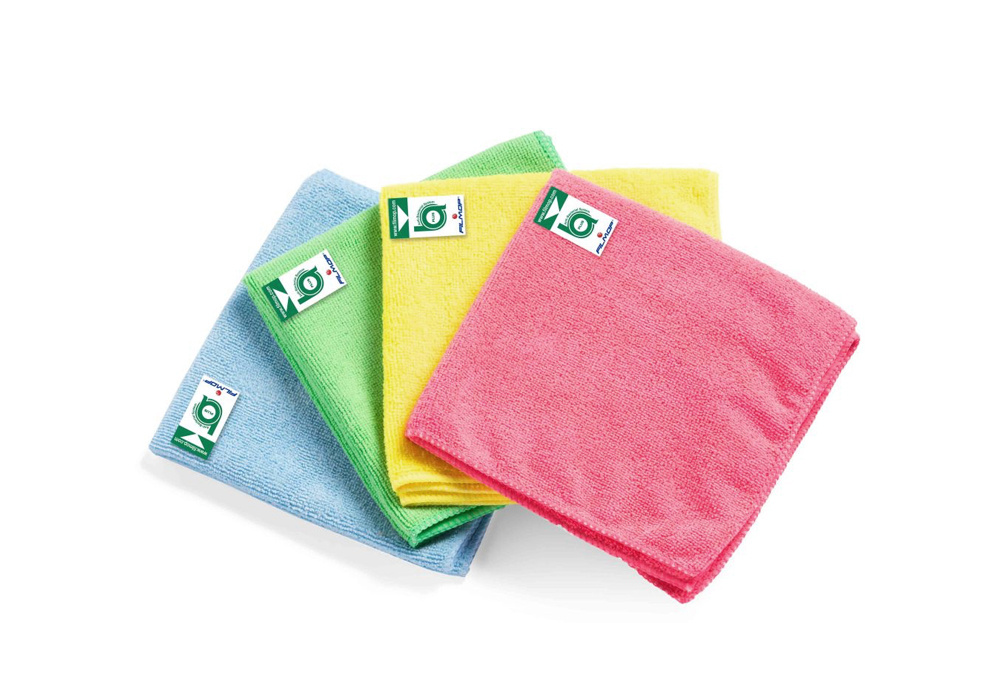WIN THE FIGHT AGAINST VIRUSES AND BACTERIA
Which cleaning procedures should be adopted in healthcare environments and which equipment should be chosen to avoid the risk of cross-contamination?
Our experts answer.

Which healthcare surfaces present a particular cross-contamination risk? Why are these surfaces particularly risky?
Cross-contamination issues are a priority in healthcare facilities where people are already weak due to their sicknesses. Any healthcare surface is potentially endangered: viruses and bacteria are everywhere because they do not have any territorial limits; therefore, each area requires well-defined and validated cleaning procedures, to prevent a dangerous spreading. In these contexts, it is important to maintain the maximum level of hygiene, cleaning every single surface with the most appropriate equipment.
During the years, Filmop has invested many resources in developing cleaning systems that help to prevent cross-contamination risk in healthcare environments.
What solution does Filmop offer to help keep the healthcare environment contamination-free? What makes this so suitable for healthcare?
Filmop has developed the mechanical dosing device Equodose to soak on demand only the mops required by the cleaning service, directly on site and with the possibility to regulate the right dose of cleaning solution. The adjustable dosing mechanism is always ready to use, representing the ideal solution for emergency cleaning and extraordinary sanitization. Moreover, its tanks preserve cleaning solutions’ active principles that could become less effective over time.
Equodose reduces the risk of cross-contamination as it allows cleaning each room with a different and always clean mop; it is therefore particularly recommended for healthcare facilities, where assuring high hygiene standard is a fundamental need.
How often should frequently-touched healthcare surfaces be cleaned?
Surfaces in healthcare facilities should be cleaned and sanitised every day; furthermore, additional cleaning operations must be put in place promptly in case of particular needs.
Cleaning equipment is necessary to restore the hygienic and sanitary conditions, but it can also become a source of bacterial diffusion: using the right equipment is essential to prevent infections.
Who tends to be responsible for ensuring that hospital bedside facilities are cleaned? Is it the in-house maintenance team, contract cleaners or the nursing staff?
It is very important to ensure patients health and well-being during their hospital stay: on this basis, adopting a collaborative and responsible attitude becomes a priority for all the involved staff. In particular, contract cleaners must guarantee a high level of hygiene and every operator in charge of cleaning activities has to be properly trained to protect himself and avoid contaminating the environment.
Are there any areas that usually tend to be left behind in healthcare facilities that should be given more attention?
Common areas like entrances and waiting rooms are subject to a continuous passage of visitors, operators and nursing staff: dirt is more present in these high passage areas, requiring targeted actions.
Filmop has developed several systems and products that improve hygiene and promptly respond to the need of cleaning the different environments with significant flow.
What can be done to alleviate the risks of cross-contamination in healthcare?
Every healthcare facility should adopt a structured and codified cleaning procedure and use functional, safe and easy-to-use tools. Correctly cleaning and sanitizing every area is the only way to prevent the risk of cross-contamination: it is essential to adopt equipment suitable to this delicate task, in order to ensure healthier environments. Our systems guarantee a high level of hygiene, drastically reducing the diffusion of viruses and bacteria.
What products and systems can help to improve hygiene in healthcare?
Filmop has developed A-B Plus, a complete cleaning system whose components have been treated with antibacterial additives. Alpha A-B Plus trolleys are made with anti-bacterial plastic and they offer the maximum level of hygiene and safety thanks to the clear separation of washing, storage and collection compartments. The antibacterial plastic frame Uniko allows you to release the flat mop without any contact, thus preventing contamination. A-B Plus system also includes anti-bacterial microfiber cloths and mops with colour-coding to identify the different area to clean, thus avoiding the transmission of dirt and bacteria from one surface to another one.



